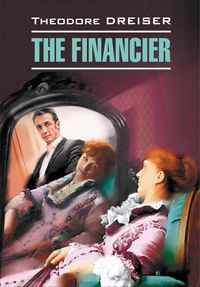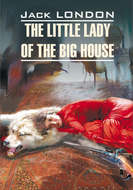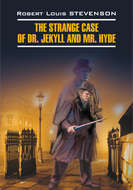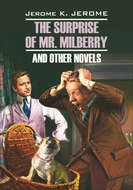Kitabı oku: «The Financier / Финансист. Книга для чтения на английском языке», sayfa 2
Chapter III
It was in his thirteenth year that young Cowperwood entered into his first business venture. Walking along Front Street one day, a street of importing and wholesale establishments, he saw an auctioneer’s flag hanging out before a wholesale grocery and from the interior came the auctioneer’s voice: “What am I bid12 for this exceptional lot of Java coffee, twenty-two bags all told, which is now selling in the market for seven dollars and thirty-two cents a bag wholesale? What am I bid? What am I bid? The whole lot must go as one. What am I bid?”
“Eighteen dollars,” suggested a trader standing near the door, more to start the bidding than anything else. Frank paused.
“Twenty-two!” called another.
“Thirty!” a third. “Thirty-five!” a fourth, and so up to seventy-five, less than half of what it was worth.
“I’m bid seventy-five! I’m bid seventy-five!” called the auctioneer, loudly. “Any other offers? Going once at seventy-five; am I offered eighty? Going twice at seventy-five, and” – he paused, one hand raised dramatically. Then he brought it down with a slap in the palm of the other – “sold to Mr. Silas Gregory for seventy-five. Make a note of that, Jerry,” he called to his red-haired, freckle-faced clerk beside him. Then he turned to another lot of grocery staples – this time starch, eleven barrels of it.
Young Cowperwood was making a rapid calculation. If, as the auctioneer said, coffee was worth seven dollars and thirty-two cents a bag in the open market, and this buyer was getting this coffee for seventy-five dollars, he was making then and there eighty-six dollars and four cents, to say nothing of what his profit would be if he sold it at retail. As he recalled, his mother was paying twenty-eight cents a pound. He drew nearer, his books tucked under his arm, and watched these operations closely. The starch, as he soon heard, was valued at ten dollars a barrel, and it only brought six. Some kegs of vinegar were knocked down at one-third their value, and so on. He began to wish he could bid; but he had no money, just a little pocket change. The auctioneer noticed him standing almost directly under his nose, and was impressed with the stolidity – solidity – of the boy’s expression.
“I am going to offer you now a fine lot of Castile soap13 – seven cases, no less – which, as you know, if you know anything about soap, is now selling at fourteen cents a bar. This soap is worth anywhere at this moment eleven dollars and seventy-five cents a case. What am I bid? What am I bid? What am I bid?” He was talking fast in the usual style of auctioneers, with much unnecessary emphasis; but Cowperwood was not unduly impressed. He was already rapidly calculating for himself. Seven cases at eleven dollars and seventy-five cents would be worth just eighty-two dollars and twenty-five cents; and if it went at half – if it went at half —
“Twelve dollars,” commented one bidder.
“Fifteen,” bid another.
“Twenty,” called a third.
“Twenty-five,” a fourth.
Then it came to dollar raises, for Castile soap was not such a vital commodity.14 “Twenty-six.”
“Twenty-seven.”
“Twentyeight.”
“Twenty-nine.” There was a pause. “Thirty,” observed young Cowperwood, decisively.
The auctioneer, a short lean faced, spare man with bushy hair and an incisive eye, looked at him curiously and almost incredulously but without pausing. He had, somehow, in spite of himself, been impressed by the boy’s peculiar eye; and now he felt, without knowing why, that the offer was probably legitimate enough, and that the boy had the money. He might be the son of a grocer.
“I’m bid thirty! I’m bid thirty! I’m bid thirty for this fine lot of Castile soap. It’s a fine lot. It’s worth fourteen cents a bar. Will any one bid thirty-one? Will any one bid thirty-one? Will any one bid thirty-one?”
“Thirty-one,” said a voice.
“Thirty-two,” replied Cowperwood. The same process was repeated.
“I’m bid thirty-two! I’m bid thirty-two! I’m bid thirty-two! Will anybody bid thirty-three? It’s fine soap. Seven cases of fine Castile soap. Will anybody bid thirty-three?”
Young Cowperwood’s mind was working. He had no money with him; but his father was teller of the Third National Bank, and he could quote him as reference. He could sell all of his soap to the family grocer, surely; or, if not, to other grocers. Other people were anxious to get this soap at this price. Why not he?
The auctioneer paused.
“Thirty-two once! Am I bid thirty-three? Thirty-two twice! Am I bid thirty-three? Thirty-two three times! Seven fine cases of soap. Am I bid anything more? Once, twice! Three times! Am I bid anything more?” – his hand was up again – “and sold to Mr. – ?” He leaned over and looked curiously into the face of his young bidder.
“Frank Cowperwood, son of the teller of the Third National Bank,” replied the boy, decisively.
“Oh, yes,” said the man, fixed by his glance.
“Will you wait while I run up to the bank and get the money?”
“Yes. Don’t be gone long. If you’re not here in an hour I’ll sell it again.”
Young Cowperwood made no reply. He hurried out and ran fast; first, to his mother’s grocer, whose store was within a block of his home.
Thirty feet from the door he slowed up, put on a nonchalant air, and strolling in, looked about for Castile soap. There it was, the same kind, displayed in a box and looking just as his soap looked.
“How much is this a bar, Mr. Dalrymple?” he inquired.
“Sixteen cents,” replied that worthy.
“If I could sell you seven boxes for sixty-two dollars just like this, would you take them?”
“The same soap?”
“Yes, sir.”
Mr. Dalrymple calculated a moment.
“Yes, I think I would,” he replied, cautiously.
“Would you pay me to-day?”
“I’d give you my note for it. Where is the soap?”
He was perplexed and somewhat astonished by this unexpected proposition on the part of his neighbor’s son. He knew Mr. Cowperwood well – and Frank also.
“Will you take it if I bring it to you to-day?”
“Yes, I will,” he replied. “Are you going into the soap business?”
“No. But I know where I can get some of that soap cheap.” He hurried out again and ran to his father’s bank. It was after banking hours; but he knew how to get in, and he knew that his father would be glad to see him make thirty dollars. He only wanted to borrow the money for a day.
“What’s the trouble, Frank?” asked his father, looking up from his desk when he appeared, breathless and red faced.
“I want you to loan me thirty-two dollars! Will you?”
“Why, yes, I might. What do you want to do with it?”
“I want to buy some soap – seven boxes of Castile soap. I know where I can get it and sell it. Mr. Dalrymple will take it. He’s already offered me sixty-two for it. I can get it for thirty-two. Will you let me have the money? I’ve got to run back and pay the auctioneer.”
His father smiled. This was the most businesslike attitude he had seen his son manifest. He was so keen, so alert for a boy of thirteen.
“Why, Frank,” he said, going over to a drawer where some bills were, “are you going to become a financier already? You’re sure you’re not going to lose on this? You know what you’re doing, do you?”
“You let me have the money, father, will you?” he pleaded. “I’ll show you in a little bit. Just let me have it. You can trust me.”
He was like a young hound on the scent of game. His father could not resist his appeal.
“Why, certainly, Frank,” he replied. “I’ll trust you.” And he counted out six five-dollar certificates of the Third National’s own issue and two ones. “There you are.”
Frank ran out of the building with a briefly spoken thanks and returned to the auction room as fast as his legs would carry him. When he came in, sugar was being auctioned. Hemade his way to the auctioneer’s clerk.
“I want to pay for that soap,” he suggested.
“Now?”
“Yes. Will you give me a receipt?”
“Yep.”
“Do you deliver this?”
“No. No delivery. You have to take it away in twenty-four hours.”
That difficulty did not trouble him.
“All right,” he said, and pocketed his paper testimony of purchase.
The auctioneer watched him as he went out. In half an hour he was back with a drayman – an idle levee-wharf hanger-on who was waiting for a job.
Frank had bargained with him to deliver the soap for sixty cents. In still another half-hour he was before the door of the astonished Mr. Dalrymple whom he had come out and look at the boxes before attempting to remove them. His plan was to have them carried on to his own home if the operation for any reason failed to go through. Though it was his first great venture, he was cool as glass.
“Yes,” said Mr. Dalrymple, scratching his gray head reflectively. “Yes, that’s the same soap. I’ll take it. I’ll be as good as my word. Where’d you get it, Frank?”
“At Bixom’s auction up here,” he replied, frankly and blandly.
Mr. Dalrymple had the drayman bring in the soap; and after some formality – because the agent in this case was a boy – made out his note at thirty days and gave it to him.
Frank thanked him and pocketed the note. He decided to go back to his father’s bank and discount it, as he had seen others doing, thereby paying his father back and getting his own profit in ready money. It couldn’t be done ordinarily on any day after business hours; but his father would make an exception in his case.
He hurried back, whistling; and his father glanced up smiling when he came in.
“Well, Frank, how’d you make out?” he asked.
“Here’s a note at thirty days,” he said, producing the paper Dalrymple had given him. “Do you want to discount that for me? You can take your thirty-two out of that.”
His father examined it closely. “Sixty-two dollars!” he observed. “Mr. Dalrymple! That’s good paper! Yes, I can. It will cost you ten per cent.,” he added, jestingly. “Why don’t you just hold it, though? I’ll let you have the thirty-two dollars until the end of the month.”
“Oh, no,” said his son, “you discount it and take your money. I may want mine.”
His father smiled at his businesslike air. “All right,” he said. “I’ll fix it to-morrow. Tell me just how you did this.” And his son told him.
At seven o’clock that evening Frank’s mother heard about it, and in due time Uncle Seneca.
“What’d I tell you, Cowperwood?” he asked. “He has stuff in him, that youngster15. Look out for him.”
Mrs. Cowperwood looked at her boy curiously at dinner. Was this the son she had nursed at her bosom not so very long before? Surely he was developing rapidly.
“Well, Frank, I hope you can do that often,” she said.
“I hope so, too, ma,” was his rather noncommittal reply.
Auction sales were not to be discovered every day, however, and his home grocer was only open to one such transaction in a reasonable period of time, but from the very first young Cowperwood knew how to make money. He took subscriptions for a boys’ paper; handled the agency for the sale of a new kind of ice-skate, and once organized a band of neighborhood youths into a union for the purpose of purchasing their summer straw hats at wholesale. It was not his idea that he could get rich by saving. From the first he had the notion that liberal spending was better, and that somehow he would get along.
It was in this year, or a little earlier, that he began to take an interest in girls. He had from the first a keen eye for the beautiful among them; and, being good-looking and magnetic himself, it was not difficult for him to attract the sympathetic interest of those in whom he was interested. <…>
It was at seventeen that he decided to leave school. He had not graduated. He had only finished the third year in high school; but he had had enough. Ever since his thirteenth year his mind had been on finance; that is, in the form in which he saw it manifested in Third Street. There had been odd things which he had been able to do to earn a little money now and then. His Uncle Seneca had allowed him to act as assistant weigher at the sugar-docks in Southwark, where three-hundred-pound bags were weighed into the government bonded warehouses under the eyes of United States inspectors. In certain emergencies he was called to assist his father, and was paid forit. He even made an arrangement with Mr. Dalrymple to assist him on Saturdays; but when his father became cashier of his bank, receiving an income of four thousand dollars ayear, shortly after Frank had reached his fifteenth year, it was self-evident that Frank could no longer continue in such lowly employment.
Just at this time his Uncle Seneca, again back in Philadelphia and stouter and more domineering than ever, said to him one day:
“Now, Frank, if you’re ready for it, I think I know where there’s a good opening16 for you. There won’t be any salary in it for the first year, but if you mind your p’s and q’s17, they’ll probably give you something as a gift at the end of that time. Do you know of Henry Waterman & Company down in Second Street?”
“I’ve seen their place.”
“Well, they tell me they might make a place for you as a bookkeeper. They’re brokers in a way – grain and commission men. You say you want to get in that line. When school’s out, you go down and see Mr. Waterman – tell him I sent you, and he’ll make a place for you, I think. Let me know how you come out.”
Uncle Seneca was married now, having, because of his wealth, attracted the attention of a poor but ambitious Philadelphia society matron; and because of this the general connections of the Cowperwoods were considered vastly improved. Henry Cowperwood was planning to move with his family rather far out on North Front Street, which commanded at that time a beautiful view of the river and was witnessing the construction of some charming dwellings. His four thousand dollars a year in these pre-Civil-War18 times was considerable. He was making what he considered judicious and conservative investments and because of his cautious, conservative, clock-like conduct it was thought he might reasonably expect some day to be vice-president and possibly president, of his bank.
This offer of Uncle Seneca to get him in with Waterman & Company seemed to Frank just the thing to start him off right. So he reported to that organization at 74 South Second Street one day in June, and was cordially received by Mr. Henry Waterman, Sr. There was, he soon learned, a Henry Waterman, Jr., a young man of twenty-five, and a George Waterman, a brother, aged fifty, who was the confidential inside man. Henry Waterman, Sr., a man of fifty-five years of age, was the general head of the organization, inside and out – traveling about the nearby territory to see customers when that was necessary, coming into final counsel in cases where his brother could not adjust matters, suggesting and advising new ventures which his associates and hirelings carried out. He was, to look at, a phlegmatic type of man – short, stout, wrinkled about the eyes, rather protuberant as to stomach, red-necked, red-faced, the least bit popeyed, but shrewd, kindly, good-natured, and witty. He had, because of his naturally common-sense ideas and rather pleasing disposition built up a sound and successful business here. He was getting strong in years and would gladly have welcomed the hearty cooperation of his son, if the latter had been entirely suited to the business.
He was not, however. Not as democratic, as quick-witted, or as pleased with the work in hand as was his father, the business actually offended him. And if the trade had been left to his care, it would have rapidly disappeared. His father foresaw this, was grieved, and was hoping some young man would eventually appear who would be interested in the business, handle it in the same spirit in which it had been handled, and who would not crowd his son out.
Then came young Cowperwood, spoken of to him by Seneca Davis. He looked him over critically. Yes, this boy might do, he thought. There was something easy and sufficient about him. He did not appear to be in the least flustered or disturbed. He knew how to keep books, he said, though he knew nothing of the details of the grain and commission business. It was interesting to him. He would like to try it.
“I like that fellow,” Henry Waterman confided to his brother the moment Frank had gone with instructions to report the following morning. “There’s something to him. He’s the cleanest, briskest, most alive thing that’s walked in here in many a day.”
“Yes,” said George, a much leaner and slightly taller man, with dark, blurry, reflective eyes and a thin, largely vanished growth of brownish-black hair which contrasted strangely with the egg-shaped whiteness of his bald head. “Yes, he’s a nice young man. It’s a wonder his father don’t take him in his bank.”
“Well, he may not be able to,” said his brother. “He’s only the cashier there.”
“That’s right.”
“Well, we’ll give him a trial. I bet anything he makes good. He’s a likely-looking youth.”
Henry got up and walked out into the main entrance looking into Second Street. The cool cobble pavements, shaded from the eastern sun by the wall of buildings on the east – of which his was a part – the noisy trucks and drays, the busy crowds hurrying to and fro, pleased him. He looked at the buildings over the way – all three and four stories, and largely of gray stone and crowded with life – and thanked his stars that he had originally located in so prosperous a neighborhood. If he had only brought more property at the time he bought this!
“I wish that Cowperwood boy would turn out to be the kind of man I want,” he observed to himself, meditatively. “He could save me a lot of running these days.”
Curiously, after only three or four minutes of conversation with the boy, he sensed this marked quality of efficiency. Something told him he would do well.
Chapter IV
The appearance of Frank Cowperwood at this time was, to say the least, prepossessing and satisfactory. Nature had destined him to be about five feet ten inches tall. His head was large, shapely, notably commercial in aspect, thickly covered with crisp, dark-brown hair and fixed on a pair of square shoulders and a stocky body. Already his eyes had the look that subtle years of thought bring. They were inscrutable. You could tell nothing by his eyes. He walked with a light, confident, springy step. Life had given him no severe shocks nor rude awakenings. He had not been compelled to suffer illness or pain or deprivation of any kind. He saw people richer than himself, but he hoped to be rich. His family was respected, his father well placed. He owed no man anything. Once he had let a small note of his become overdue at the bank, but his father raised such a row that he never forgot it. “I would rather crawl on my hands and knees than let my paper go to protest19,” the old gentleman observed; and this fixed in his mind what scarcely needed to be so sharply emphasized – the significance of credit. No paper of his ever went to protest or became overdue after that through any negligence of his.
He turned out to be the most efficient clerk that the house of Waterman & Co. had ever known. They put him on the books at first as assistant bookkeeper, vice Mr. Thomas Trixler, dismissed, and in two weeks George said: “Why don’t we make Cowperwood head bookkeeper? He knows more in a minute than that fellow Sampson will ever know.”
“All right, make the transfer, George, but don’t fuss so. He won’t be a bookkeeper long, though. I want to see if he can’t handle some of these transfers for me after a bit.”
The books of Messrs. Waterman & Co., though fairly complicated, were child’s play to Frank. He went through them with an ease and rapidity which surprised his erstwhile superior, Mr. Sampson.
“Why, that fellow,” Sampson told another clerk on the first day he had seen Cowperwood work, “he’s too brisk. He’s going to make a bad break. I know that kind. Wait a little bit until we get one of those rush credit and transfer days.” But the bad break Mr. Sampson anticipated did not materialize. In less than a week Cowperwood knew the financial condition of the Messrs. Waterman as well as they did – better – to a dollar. He knew how their accounts were distributed; from what section they drew the most business; who sent poor produce and good – the varying prices for a year told that. To satisfy himself he ran back over certain accounts in the ledger, verifying his suspicions. Bookkeeping did not interest him except as a record, a demonstration of a firm’s life. He knew he would not do this long. Something else would happen; but he saw instantly what the grain and commission business was – every detail of it. He saw where, for want of greater activity in offering the goods consigned – quicker communication with shippers and buyers, a better working agreement with surrounding commission men – this house, or, rather, its customers, for it had nothing, endured severe losses. A man would ship a tow-boat or a car-load of fruit or vegetables against a supposedly rising or stable market; but if ten other men did the same thing at the same time, or other commission men were flooded with fruit or vegetables, and there was no way of disposing of them within a reasonable time, the price had to fall. Every day was bringing its special consignments. It instantly occurred to him that he would be of much more use to the house as an outside man disposing of heavy shipments, but he hesitated to say anything so soon. More than likely, things would adjust themselves shortly.
The Watermans, Henry and George, were greatly pleased with the way he handled their accounts. There was a sense of security in his very presence. He soon began to call Brother George’s attention to the condition of certain accounts, making suggestions as to their possible liquidation or discontinuance, which pleased that individual greatly. He saw a way of lightening his own labors through the intelligence of this youth; while at the same time developing a sense of pleasant companionship with him.
Brother Henry was for trying him on the outside. It was not always possible to fill the orders with the stock on hand, and somebody had to go into the street or the Exchange to buy and usually he did this. One morning, when way-bills indicated a probable glut of flour and a shortage of grain – Frank saw it first – the elder Waterman called him into his office and said:
“Frank, I wish you would see what you can do with this condition that confronts us on the street. By to-morrow we’re going to be overcrowded with flour. We can’t be paying storage charges, and our orders won’t eat it up. We’re short on grain. Maybe you could trade out the flour to some of those brokers and get me enough grain to fill these orders.”
“I’d like to try,” said his employee.
He knew from his books where the various commission-houses were. He knew what the local merchants’ exchange, and the various commission-merchants who dealt in these things, had to offer. This was the thing he liked to do – adjust a trade difficulty of this nature. It was pleasant to be out in the air again, to be going from door to door. He objected to desk work and pen work and poring over books. As he said in later years, his brain was his office. He hurried to the principal commission-merchants, learning what the state of the flour market was, and offering his surplus at the very rate he would have expected to get for it if there had been no prospective glut. Did they want to buy for immediate delivery (forty-eight hours being immediate) six hundred barrels of prime flour? He would offer it at nine dollars straight, in the barrel. They did not. He offered it in fractions, and some agreed to take one portion, and some another. In about an hour he was all secure on this save one lot of two hundred barrels, which he decided to offer in one lump20 to a famous operator named Genderman with whom his firm did no business. The latter, a big man with curly gray hair, a gnarled and yet pudgy face, and little eyes that peeked out shrewdly through fat eyelids, looked at Cowperwood curiously when he came in.
“What’s your name, young man?” he asked, leaning back in his wooden chair.
“Cowperwood.”
“So you work for Waterman & Company? You want to make a record, no doubt21. That’s why you came to me?”
Cowperwood merely smiled.
“Well, I’ll take your flour. I need it. Bill it to me.22”
Cowperwood hurried out. He went direct to a firm of brokers in Walnut Street, with whom his firm dealt, and had them bid in the grain he needed at prevailing rates. Then he returned to the office.
“Well,” said Henry Waterman, when he reported, “you did that quick. Sold old Genderman two hundred barrels direct, did you? That’s doing pretty well. He isn’t on our books, is he?”
“No, sir.”
“I thought not. Well, if you can do that sort of work on the street you won’t be on the books long.”
Thereafter, in the course of time, Frank became a familiar figure in the commission district and on ’change (the Produce Exchange)23, striking balances for his employer, picking up odd lots of things they needed, soliciting new customers, breaking gluts by disposing of odd lots in unexpected quarters. Indeed the Watermans were astonished at his facility in this respect.
He had an uncanny faculty for getting appreciative hearings, making friends, being introduced into new realms. New life began to flow through the old channels of the Waterman Company. Their customers were better satisfied. George was for sending him out into the rural districts to drum up trade, and this was eventually done.
Near Christmas-time Henry said to George: “We’ll have to make Cowperwood a liberal present. He hasn’t any salary.
How would five hundred dollars do?”
“That’s pretty much, seeing the way times are24, but I guess he’s worth it. He’s certainly done everything we’ve expected, and more. He’s cut out for this business.25”
“What does he say about it? Do you ever hear him say whether he’s satisfied?”
“Oh, he likes it pretty much, I guess. You see him as much as I do.”
“Well, we’ll make it five hundred. That fellow wouldn’t make a bad partner in this business some day. He has the real knack for it. You see that he gets the five hundred dollars with a word from both of us.”
So the night before Christmas, as Cowperwood was looking over some way-bills and certificates of consignment preparatory to leaving all in order for the intervening holiday, George Waterman came to his desk.
“Hard at it,” he said, standing under the flaring gaslight and looking at his brisk employee with great satisfaction.
It was early evening, and the snow was making a speckled pattern through the windows in front.
“Just a few points before I wind up,” smiled Cowperwood.
“My brother and I have been especially pleased with the way you have handled the work here during the past six months. We wanted to make some acknowledgment, and we thought about five hundred dollars would be right. Beginning January first we’ll give you a regular salary of thirty dollars a week.”
“I’m certainly much obliged to you,” said Frank. “I didn’t expect that much. It’s a good deal. I’ve learned considerable here that I’m glad to know.”
“Oh, don’t mention it. We know you’ve earned it. You can stay with us as long as you like. We’re glad to have you with us.”
Cowperwood smiled his hearty, genial smile. He was feeling very comfortable under this evidence of approval. He looked bright and cheery in his well-made clothes of English tweed.
On the way home that evening he speculated as to the nature of this business. He knew he wasn’t going to stay there long, even in spite of this gift and promise of salary. They were grateful, of course; but why shouldn’t they be? He was efficient, he knew that; under him things moved smoothly. It never occurred to him that he belonged in the realm of clerk-dom. Those people were the kind of beings who ought to work for him, and who would. There was nothing savage in his attitude, no rage against fate, no dark fear of failure. These two men he worked for were already nothing more than characters in his eyes – their business significated itself. He could see their weaknesses and their shortcomings as a much older man might have viewed a boy’s.
After dinner that evening, before leaving to call on his girl, Marjorie Stafford, he told his father of the gift of five hundred dollars and the promised salary.
“That’s splendid,” said the older man. “You’re doing better than I thought. I suppose you’ll stay there.”
“No, I won’t. I think I’ll quit sometime next year.”
“Why?”
“Well, it isn’t exactly what I want to do. It’s all right, but I’d rather try my hand at brokerage, I think. That appeals to me.”
“Don’t you think you are doing them an injustice not to tell them?”
“Not at all. They need me.” All the while surveying himself in a mirror, straightening his tie and adjusting his coat.
“Have you told your mother?”
“No. I’m going to do it now.”
He went out into the dining-room, where his mother was, and slipping his arms around her little body, said: “What do you think, Mammy?”
“Well, what?” she asked, looking affectionately into his eyes.
“I got five hundred dollars to-night, and I get thirty a week next year. What do you want for Christmas?”
“You don’t say! Isn’t that nice! Isn’t that fine! They must like you. You’re getting to be quite a man, aren’t you?”
“What do you want for Christmas?”
“Nothing. I don’t want anything. I have my children.”
He smiled. “All right. Then nothing it is.”
But she knew he would buy her something.
He went out, pausing at the door to grab playfully at his sister’s waist, and saying that he’d be back about midnight, hurried to Marjorie’s house, because he had promised to take her to a show.
“Anything you want for Christmas this year, Margy?” he asked, after kissing her in the dimly-lighted hall. “I got five hundred to-night.”
She was an innocent little thing, only fifteen, no guile, no shrewdness.
“Oh, you needn’t get me anything.”
“Needn’t I?” he asked, squeezing her waist and kissing her mouth again.
It was fine to be getting on this way in the world and having such a good time.








